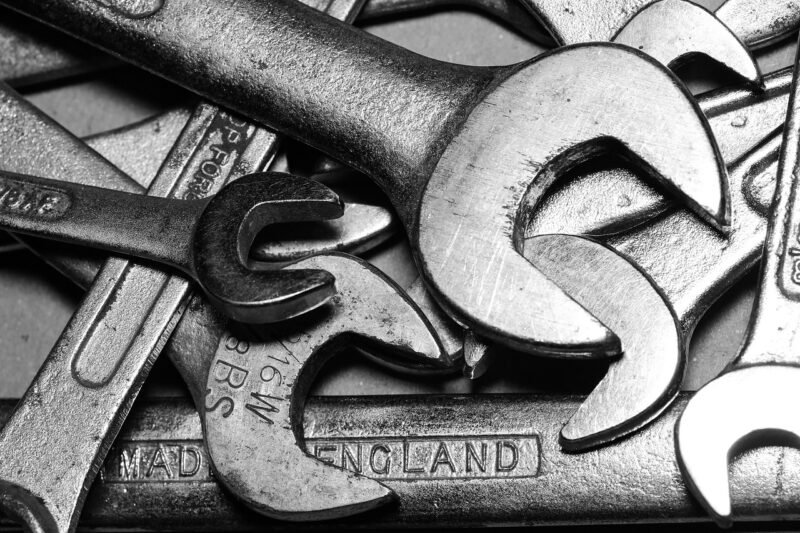How to Improve Your Vehicle’s Fuel Efficiency with Simple Maintenance Tips
November 13, 2024

Fuel efficiency is a crucial concern for vehicle owners, not only for environmental sustainability but also for savings on fuel costs. According to the U.S. Department of Energy, simple maintenance can significantly enhance the fuel efficiency of your vehicle, ultimately saving you money over time. In this article, we will delve into practical, easy-to-implement maintenance tips that can help you improve your vehicle’s fuel efficiency, ensuring that you get the most miles out of every gallon of gas.
1. Keeping Your Tires Properly Inflated
Proper tire inflation is one of the most straightforward yet impactful ways to improve fuel efficiency. Under-inflated tires increase rolling resistance, making your engine work harder and thus consuming more fuel.
Tip: Check your tire pressure at least once a month, and make sure it matches the manufacturer’s recommended levels, usually found on a sticker inside the driver’s door jamb or in your vehicle’s owner’s manual. Additionally, ensure that your tires are aligned and balanced; misalignment can also lead to irregular wear and decreased fuel efficiency.
2. Regular Oil Changes
Using the correct type of motor oil can have a significant impact on your vehicle’s performance. Motor oil lubricates your engine and reduces friction, allowing it to run smoothly and efficiently.
Tip: Always refer to your owner’s manual for the recommended oil type and change intervals. Consider switching to synthetic oil, which often provides better fuel economy than conventional oil, extending the time between changes while maintaining engine performance.
3. Air Filter Maintenance
A clean air filter is essential for optimal engine performance. The air filter’s job is to prevent dirt and debris from entering the engine, which, if not replaced regularly, can lead to inefficient combustion.
Tip: Check your air filter every 12,000 to 15,000 miles, or more frequently if you drive in dusty conditions. Replacing a dirty air filter can enhance fuel efficiency by up to 10%.
4. Spark Plug Inspection
Spark plugs ignite the air-fuel mixture in the combustion chamber, and worn or dirty spark plugs can lead to misfires, reduced power, and decreased fuel efficiency.
Tip: Inspect your spark plugs regularly and replace them according to your vehicle’s service schedule, generally every 30,000 miles or as recommended in the owner’s manual. Upgrading to high-performance plugs can also yield better fuel economy.
5. Fuel System Cleaning
Over time, fuel injectors can become clogged with deposits, affecting fuel delivery and efficiency. A clean fuel system ensures that your engine receives the right amount of fuel for optimal performance.
Tip: Consider using a fuel system cleaner every few thousand miles or have a professional cleaning done during your routine maintenance. Some auto care products are designed to keep fuel injectors clean, thus improving fuel economy.
6. Optimize Your Driving Habits
Your driving style plays a crucial role in fuel efficiency. Aggressive driving—characterized by rapid acceleration and hard braking—can reduce your gas mileage by as much as 33% on highways and 5% in city driving.
Tip: Adopt smooth acceleration and braking techniques, maintain a steady speed, and use cruise control when appropriate. Furthermore, avoid idling when stopped for extended periods, as this wastes fuel unnecessarily.
7. Reduce Excess Weight & Drag
Carrying too much weight in your vehicle can decrease your gas mileage since your engine has to work harder to move the extra load. Likewise, roof racks and cargo boxes can create additional wind resistance (drag).
Tip: Regularly remove any unnecessary items from your vehicle, and take off roof racks when not in use. Reducing your vehicle’s overall weight will help improve fuel efficiency.
8. Choose the Right Fuel
While it’s true that most modern vehicles can run on regular gasoline, using a higher octane fuel than what’s recommended does not necessarily improve performance or efficiency.
Tip: Always use the fuel type recommended in your owner’s manual. Higher-octane fuels are not more efficient for engines designed for lower octane.
9. Regular Professional Inspections
Routine inspections by a qualified mechanic can help identify issues before they become significant problems. Regular professional maintenance checks ensure that all systems — including brakes, steering, and fluid levels — are functioning optimally.
Tip: Schedule regular service appointments according to your vehicle’s maintenance schedule. This proactive measure can help keep your vehicle running efficiently and extend its lifespan.
Conclusion
Improving your vehicle’s fuel efficiency doesn’t require major redesigns or expensive modifications. By following these simple maintenance tips, you can keep your vehicle in optimal condition while saving money at the pump. By investing a little time and effort into your vehicle’s upkeep, you’ll contribute to environmental sustainability and enjoy the perks of a more fuel-efficient ride. Start implementing these tips today, and watch your fuel efficiency improve!






